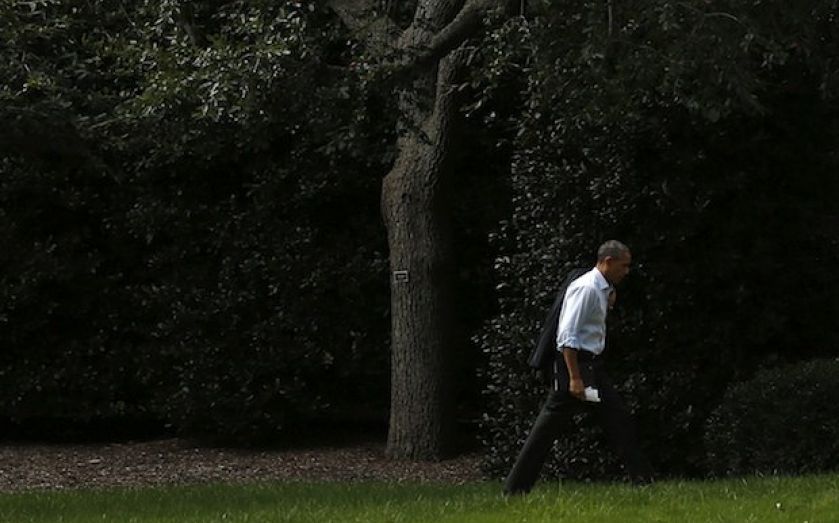Debt ceiling showdown: America can never again be seen as indestructible

BY THE early hours of April 15, 1912, it was horribly clear that the unthinkable was about to happen. RMS Titanic – then the largest passenger steamship in the world – was about to go to the bottom of the Atlantic. Of 2,223 passengers, 1,517 were to end in a watery grave, the victims of an almost unimaginable case of hubris.
This analogy is perhaps the most overused in all of modern writing. So before sighing and moving on to the next article, please bear with me. It has important implications for the dangerous next stages of the US debt ceiling crisis – despite any temporary resolution that may emerge.
The loss of life on the Titanic was so huge because of a little-remarked-upon fact. Given that the world imagined the ship indestructible, absolutely no thought had been given to what happened if this basic fact was simply not true. Critically, while complying with the lax safety codes of the day, no one spared a moment’s reflection as to whether there was any reason for the great ship to exceed them. There were only spaces in the lifeboats for 1,178 passengers. From the great basic error of indestructibility flowed the many smaller practical mistakes that led to the ship’s sinking amounting to a global tragedy.
So it goes for the world’s investors, if America – despite the madness of it – reaches Thursday without an agreement on extending the debt ceiling. For their one basic error is fundamental: dominant global powers don’t commit suicide, do they?
To be comforted by this Hegelian bedtime story is to be wholly unaware of the twentieth century. The entrenched European dominance of the world came to a sudden and ghastly end a century ago with the First World War, a death swoon that began for reasons so obscure they are still debated today. For that matter, the empire of Japan chose to attack a slumbering America in December 1941, decisively ending its dreams of an Asian empire. In other words, yes, dominant powers can do and have done incredibly stupid things; such an outcome must never be analytically discounted.
There are two key moments ahead that would signal the iceberg has been missed on this occasion. This morning US time, bond traders in New York will return to their desks from the long Columbus Day weekend. If markets drop off the table then, Congress could well cobble together a stopgap deal in record time.
There is also the last minute Fear of God moment late on Wednesday night when – finally aware of the mess they have caused – Capitol Hill is prodded to do what it does best: kick the can down the road, passing a bill to fund the government for a matter of weeks, resetting the clock so this ignominious flirtation with disaster can start all over again. Frankly, it’s a 50-50 proposition at this point as to whether needless calamity is avoided.
My deep fears are roused by the fact that no one seems to be learning anything. The most current antics should make any grown-up roll their eyes. Exhilarated by polls that show a furious America is angrier with Republicans than with them, the Democrats have not bothered to ask why this is so. Over the weekend, the Democrats took to trying to unpick legislation that they in turn hate: the sequester budget deal that forces them to accept real, if minor, cuts in discretionary spending. Senate Democrats also rejected moderate Republican Susan Collins’s (one of the last adults standing) proposal to raise the debt ceiling through January, reopen the government, and in return delay the unpopular Obamacare tax on medical devices for two years.
Instead, the Democrats are overreaching, objecting to a continued acceptance of the sequester cuts for the next six months. Democrats are doing exactly what has driven the country crazy about Republicans: they are playing chicken with the American economy for less than Olympian stakes.
For even if catastrophe is avoided at the last second, this death instinct in both parties must, over time, call into question the political stability of the US, and thus its economic stability. In the ten years I worked in Washington, I well remember commenting wonderingly to my staff that we spent all of our time assessing political risks in the rest of the world, while never for an instant looking at what was going on in our own political system.
Political risk was for other people. After the tragi-comedy of the past few weeks, no one will ever feel this way again. As is true with anything else, America is not unsinkable.
Dr John C Hulsman is president and co-founder of John C Hulsman Enterprises (www.john-hulsman.com), a political risk consultancy. He is a life member of the Council on Foreign Relations, and author of Ethical Realism, The Godfather Doctrine, and Lawrence of Arabia, To Begin the World Over Again.